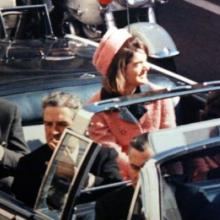secrecy
THE TRANS-PACIFIC Partnership may be the largest free trade agreement you’ve never heard of. Or if you have heard of the TPP, it’s likely due to media reports about efforts by President Obama to fast-track the agreement through legislative hurdles. Still, details of the agreement and its secret negotiation process are sparse. Were it not for released drafts of the document and sub-chapters made available by the whistle-blowing site WikiLeaks, it is likely the general public would know little to nothing of the accord.
Building on the foundation of a 2006 economic partnership agreement adopted to encourage trade between Brunei, Chile, New Zealand, and Singapore, the TPP’s expansion of the agreement grows the number of participant nations to 12, adding Australia, Canada, Japan, Malaysia, Mexico, Peru, Vietnam, and the United States. The combined economic force of these nations would dominate global trade, representing roughly $28 trillion—nearly 40 percent—of the world’s gross domestic product.
But the magnitude of this trading pool isn’t what concerns most critics of the TPP. What is more troubling to labor, environmental, and health groups are the powers seemingly granted to multinational corporations by the agreement and the unilateral easing of climate change laws that serve to restrain industrial nations from disproportionate consumption and pollution.
Expanded corporate powers are nothing new for international trade agreements. The North American Free Trade Agreement (NAFTA) gave rise to a legal quagmire that has allowed Exxon Mobil to challenge Canadian offshore drilling regulations, Dow Chemical to bypass local guidelines to expand pesticide production and waste disposal in Mexico, and Eli Lilly to enforce U.S.-issued drug patents and prices outside the country. Previously, under World Trade Organization treaty guidelines, a corporate entity needed to persuade its host country to challenge the trade laws of another. Corporations could not directly litigate against a sovereign nation or its policies.
NOVEMBER MARKS the 50th anniversary of the assassination of our 35th president, an event that defined the life of the baby-boomers—a generation that, by sheer force of numbers, still sucks up most of the oxygen in U.S. culture. There are new books, reissued books, documentaries, made-for-TV movies, and a new Hollywood production, Parkland, starring that Everyman of the baby boom, Tom Hanks. But, anniversary hoopla aside, the JFK assassination and its aftermath can also provide us with some very timely lessons about the dangers that come with secret wars and unaccountable power.
Fifty-nine percent of Americans don’t believe the official story that Lee Harvey Oswald alone killed President John F. Kennedy, and this time the majority is right. The available evidence strongly suggests that the president was the victim of a murder plot that involved anti-Castro Cubans, enraged by his failure to back them up during the Bay of Pigs invasion, and their allies in organized crime who had been heavily invested in pre-Castro Havana. That was the conclusion of the House Select Committee on Assassinations in 1978, which also found physical evidence of another shooter at the crime scene.
Of course, the armed anti-Castro forces in Florida were a bought-and-paid-for creation of our CIA, and the CIA was also working with organized crime figures in various plots to assassinate Castro. So it’s no great leap to suspect some complicity in Kennedy’s assassination by CIA employees. Some reasonable people, including peace activist and theologian James W. Douglass in his book JFK and the Unspeakable, have gone further, claiming that the Kennedy assassination was the result of a policy decision, taken at the very highest levels of the national security state, aimed at heading off JFK’s plans to pull out of Vietnam and end the Cold War. This theory relies heavily on National Security Action Memorandum 263, which laid out plans to begin withdrawing troops from Vietnam, and journalist Norman Cousins’ account of back channel diplomacy in the book, The Improbable Triumvirate: John F. Kennedy, Pope John, Nikita Khrushchev.

